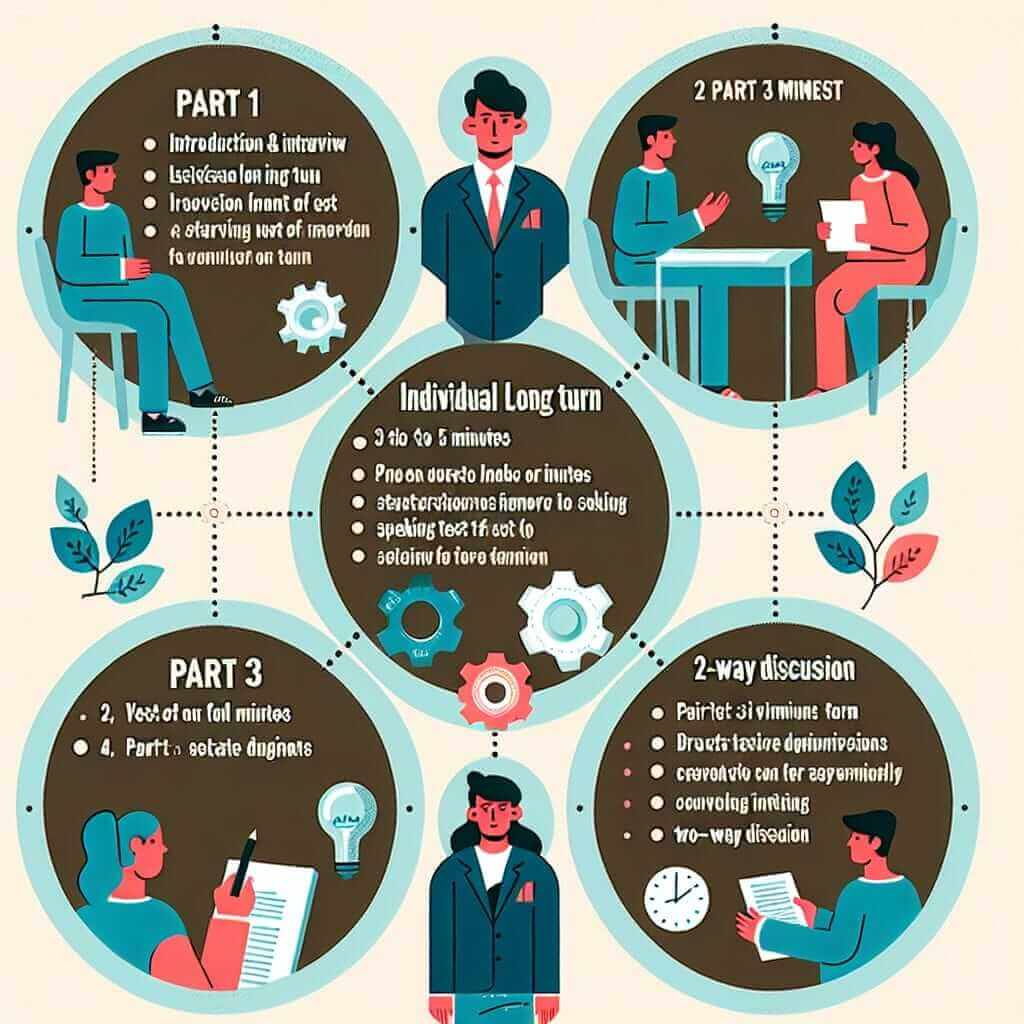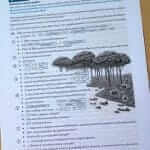Time management is crucial for success in the IELTS Speaking test, just as it is in other sections of the exam. Effective time management can be the difference between a confident and articulate performance and a rushed and incomplete one.
Why is Time Management Important in IELTS Speaking?
The IELTS Speaking test is designed to assess your ability to communicate effectively in English in a limited time frame. Here’s why mastering time management is key:
- Fluency and Coherence: Rushing through your responses can affect your fluency and make it difficult for the examiner to follow your train of thought.
- Completing All Parts: The Speaking test has three parts, each with a specific time limit. Managing time ensures you can adequately address all sections and demonstrate your skills fully.
- Developing Ideas: Time pressure can hinder your ability to think critically and formulate thoughtful responses. Effective time management allows you to showcase a range of vocabulary and grammatical structures.
- Confidence: Feeling in control of your time can boost your confidence during the test, leading to a more natural and successful performance.
How to Manage Your Time Effectively During the IELTS Speaking Test
Here are some practical tips to help you manage time effectively in the IELTS Speaking test:
Part 1: Introduction and Interview (4-5 minutes)
- Listen Carefully: Pay close attention to the examiner’s questions to provide relevant and concise answers.
- Avoid One-Word Answers: While being concise is important, aim for responses that are 2-3 sentences long to demonstrate your fluency.
- Keep it Moving: Don’t dwell too long on one question. If you’re unsure, provide a brief answer and move on.
Part 2: Individual Long Turn (3-4 minutes)
- Plan Strategically: Utilize the 1 minute of preparation time to jot down key points and vocabulary related to the topic.
- Structure Your Response: Follow a clear structure (introduction, main points, conclusion) to ensure a coherent and well-organized response.
- Pace Yourself: Practice speaking for 2 minutes on various topics beforehand to get a sense of timing.
Part 3: Two-Way Discussion (4-5 minutes)
- Express Your Opinions: Don’t be afraid to share your thoughts and opinions on the given topic.
- Support Your Ideas: Provide reasons and examples to justify your viewpoints, demonstrating your ability to develop ideas.
- Engage in the Discussion: Listen actively to the examiner’s prompts and questions and respond thoughtfully.
 ielts speaking test structure
ielts speaking test structure
Examples from IELTS Speaking Tests
Part 1 Example:
- Examiner: “Tell me about your hobbies.”
- Candidate: (Good time management) “I enjoy reading in my free time, particularly historical fiction. I find it fascinating to learn about different periods and cultures through stories.”
Part 2 Example:
- Topic: Describe a memorable journey you have taken.
(Well-managed response): The candidate uses the 1 minute to plan, speaks for 1.5 – 2 minutes, leaving time for follow-up questions.
Part 3 Example:
- Examiner: “Do you think technology has had a positive or negative impact on communication?”
- Candidate: (Balanced and well-timed response) “Technology has certainly revolutionized communication, making it easier to connect with people globally. However, I also believe it has its drawbacks, as face-to-face interactions have become less frequent.”
Tips for Success
- Practice Regularly: Time yourself during practice sessions to get accustomed to the time limits of each part.
- Record Yourself: Listening to your recordings can help you identify areas where you tend to speak too quickly or slowly.
- Seek Feedback: Ask a teacher or language partner to provide feedback on your timing and fluency.
Conclusion
Effective time management is essential for achieving a high score in the IELTS Speaking test. By understanding the time limits, practicing regularly, and employing strategic time management techniques, you can enhance your fluency, coherence, and overall performance on test day. Remember, practice and preparation are key to feeling confident and in control of your time during this important component of the IELTS exam.


